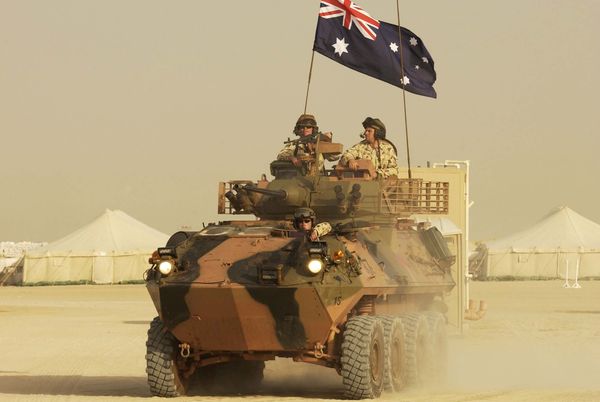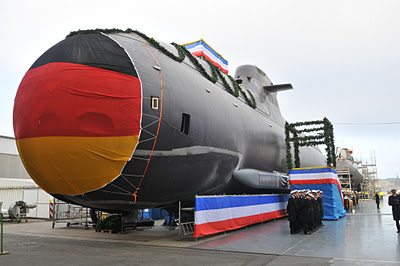President Barack Obama joined Australian Prime Minister Julia Gillard today to announce expanded military-to-military relationships between the two countries as they commemorated the 60th anniversary of the Australia-New Zealand-U.S. alliance.
Speaking at a joint news conference in the Australian capital of Canberra, the leaders announced closer collaboration between the U.S. Marine Corps and Air Force and the Australian Defense Force.
Beginning in mid-2012, company-size rotations of 200 to 250 Marines will begin deploying near Darwin in Australia’s Northern Territory for six-month rotations. Gillard said the presence will expand to a force of 2,500 over the next several years.
“As of today’s deal, U.S. Marines will be for the first time conducting exercises by themselves on Australian soil,” Obama said.
This rotational deployment is significant because it allows the United States and Australia to build capacity and cooperation, the president said.
“But it also allows us to meet the demands of a lot of partners in the region” in terms of training, exercises and “the presence that’s necessary to maintain the security architecture of the region,” he added.
Obama and Gillard also agreed to provide U.S. military aircraft greater access to Royal Australian Air Force facilities in northern Australia.
The expanded relationship will ensure “we’re going to be in a position to more effectively strengthen the security of both of our nations and this region,” Obama said.
It also will ensure an ability to respond faster to crises and provide humanitarian and disaster relief, he said. “This will allow us to be able to respond in a more timely fashion and also equip a lot of … smaller countries who may not have the same capacity,” he said. “It allows us to equip them so that they can respond more quickly as well.”
The expanded U.S.-Australia military relationship also “sends a clear message of our commitment to this region, a commitment that is enduring and unwavering” the president said.
“I am making it clear that the United States is stepping up its commitment to the entire Asia-Pacific [region],” the president said, thanking Australia for its leadership role in the region.
“As it has been for six decades” he continued, “our alliance is going to be indispensable to our shared future, the security we need and the prosperity that we seek, not only in this region, but around the world.”
The talks in Australia spanned a range of challenges that extend beyond the region, including the International Security Assistance Force mission in Afghanistan, the president said.
“Obviously, this has not been an easy mission for either of our countries,” he said, expressing condolences for Australia’s fallen. “But we both understand what’s at stake — what happens when al-Qaida has safe havens. We’ve seen the awful loss of life, from 9/11 to Bali.”
Obama cited progress in the transition process in Afghanistan as security responsibility is transferred to Afghan security forces.
“But it’s important that we do it right,” he said. “Given the enormous investment that’s been made and the signs that we can, in fact, leave behind a country that’s not perfect, but one that is more stable, more secure and does not provide safe haven for terrorists, it’s appropriate for us to finish the job and do it right.”











